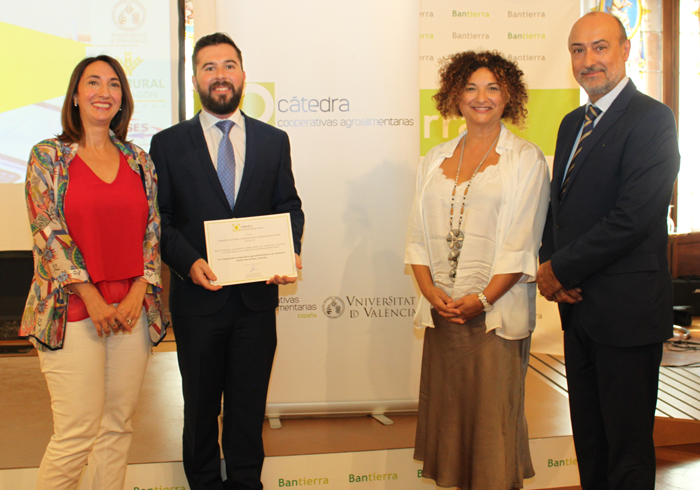
The undergraduate final project, entitled "Agri-food Cooperatives Integration and its Promotion", by Daniel Hernández Cáceres has won the 1st Award of the Chair for Agri-food Cooperatives, a chair promoted by Agri-food Cooperatives of Spain together with the Universitat de València (UV).
The work is based on analysing the current process of cooperative integration and how the Administration is supporting this type of business strategy. Daniel Hernández summarises his work by explaining that "Faced with the systemic atomisation of the Spanish Agri-food cooperative system and the resulting loss of competitiveness of Spanish cooperatives in the international market, the state and regional public authorities have developed a series of legislative measures to try to encourage the integration of these entities. Through preferential access to subsidies and aid for those entities that meet certain criteria in terms of turnover, implementation, marketing, etc. the aim is to encourage Agri-food Cooperatives to carry out integration processes that will help them to gain in size and competitiveness”.
The author concludes that even though the Cooperative Integration Law 13/2013 initially generated a lot of expectations in the sector, meeting the requirements has been very difficult for cooperatives, and this is reflected in the small number of entities that have been recognised as EAPs during the almost 5 years that it has been in force. In this low take-up, the requirements that have had the greatest influence has been that of turnover; the high quotas demanded meant that almost no cooperative on its own was able to reach the minimum established at the time the law was passed. It seems that, given the amounts of turnover required, the Law is designed solely for the integration of the largest entities in each sector, practically excluding the small and micro cooperatives which account for 80% of Spanish Agri-food cooperatives. “Perhaps it would have been more appropriate to plan a long-term project, with a progressive transitional period requiring different amounts, to which smaller entities could have been added”, adds Daniel Hernández.










